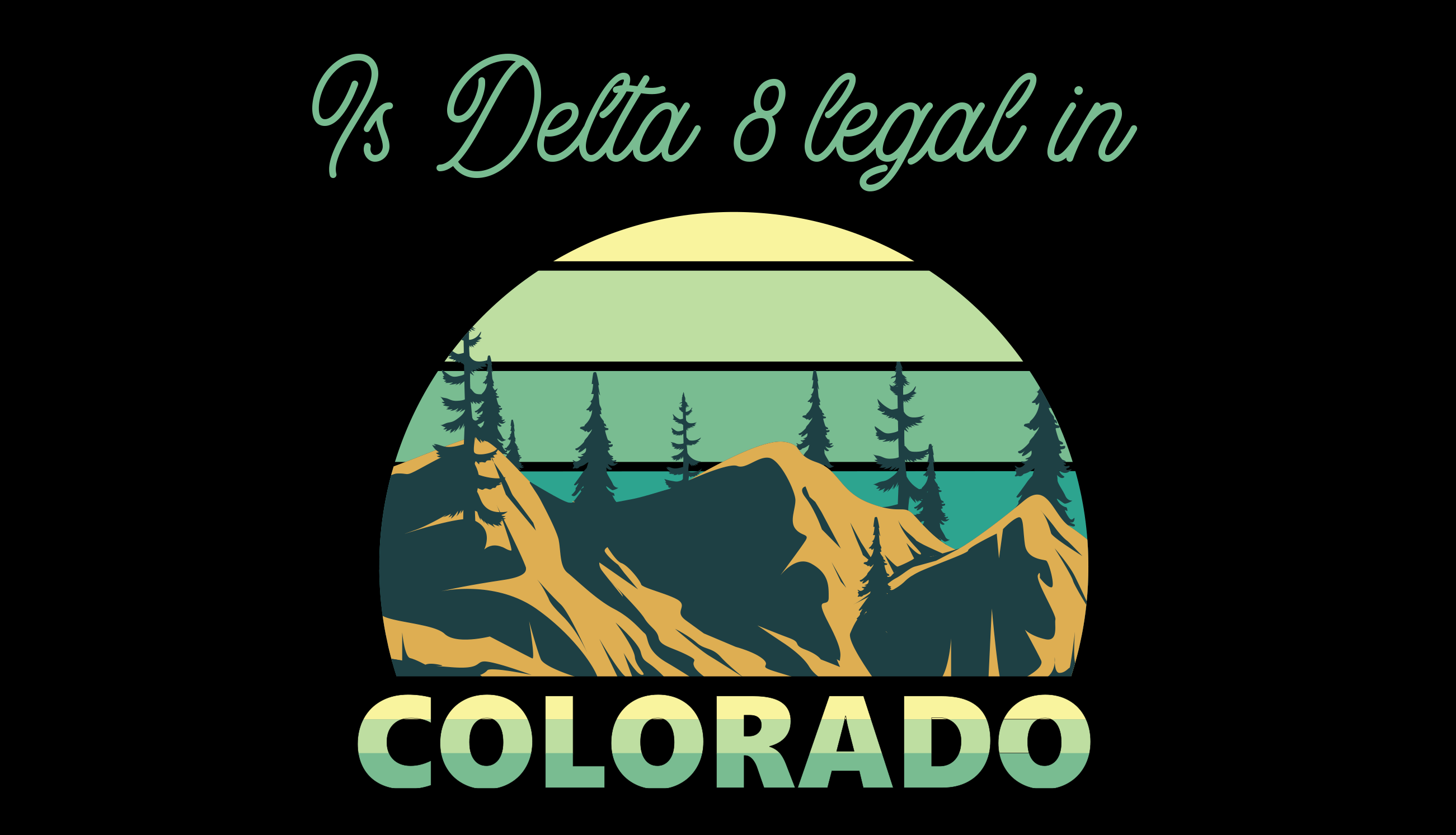Is Delta 8 THC legal in Colorado?
NO, Delta 8 is not legal in Colorado
Despite being legal at the federal level, Delta 8 THC is currently prohibited in several states, including Alaska, Arizona, Arkansas, Colorado, Delaware, Idaho, Iowa, Mississippi, Montana, Rhode Island, and Utah.
The legality of Delta 8 THC depends on the source of the substance, and it is only considered legal if it is extracted from hemp that is compliant with the Farm Bill and contains no more than 0.3% THC.
In Colorado, Delta 8 THC products are currently unavailable for purchase. However, Delta 9 THC products are legally obtainable from licensed cannabis dispensaries, provided the purchaser is at least 21 years old and has a valid government-issued ID.
Read our legal disclaimer HERE. While we try to stay as up to date as possible on all state laws, you should do your own due diligence and work with a legal professional to ensure you are operating legally in your state or territory at all times.
NOTE: The Colorado Department of Agriculture Industrial Hemp Program will continue to operate as is, under the 2014 Farm Bill, until the USDA approved state plan is adopted November 1, 2020.
SENATE BILL 14-184
35-61-101. Definitions.
(5) “Delta-9 tetrahydrocannabinols” has the same meaning as “tetrahydrocannabinols” as set forth in section 27-80-203 (24), C.R.S.
COLORADO REVISED STATUTES TITLE 27. BEHAVIORAL HEALTH
Section 27-80-203
(24), C.R.S(24) (a) “Tetrahydrocannabinols” means synthetic equivalents of the substances contained in the plant, or in the resinous extractives of, cannabis, sp., or synthetic substances, derivatives, and their isomers with similar chemical structure and pharmacological activity, such as the following:
(I) ¹cis or trans tetrahydrocannabinol, and their optical isomers;
(II) 6 cis or trans tetrahydrocannabinol, and their optical isomers;
(III) 3,4 cis or trans tetrahydrocannabinol, and their optical isomers.(b) Since the nomenclature of the substances listed in paragraph (a) of this subsection
Definition found HERE
(7) “Industrial hemp” means a plant of the genus cannabis and any part of the plant, whether growing or not, containing a delta-9 tetrahydrocannabinol concentration of no more than three-tenths of one percent on a dry weight basis.
Legal document found HERE
TITLE 18 CRIMINAL CODE. ARTICLE 18. UNIFORM CONTROLLED SUBSTANCES ACT OF 2013. PART 1
18-18-102. Definitions.
(18) “Marijuana” means all parts of the plant cannabis sativa L., whether growing or not, the seeds thereof, the resin extracted from any part of the plant, and every compound, manufacture, salt, derivative, mixture, or preparation of the plant, its seeds, or its resin. It does not include fiber produced from the stalks, oil, or cake made from the seeds of the plant, or sterilized seed of the plant which is incapable of germination if these items exist apart from any Uniform Controlled Substances Act 6 of 53 2016 other item defined as “marijuana” in this subsection (18). “Marijuana” does not include marijuana concentrate as defined in subsection (19) of this section.
(35) (a) “Tetrahydrocannabinols” means synthetic equivalents of the substances contained in the plant, or in the resinous extractives of, cannabis, sp., or synthetic substances, derivatives, and their isomers with similar chemical structure and pharmacological activity, such as the following:
(I) ¹Cis or trans tetrahydrocannabinol, and their optical isomers;
(II) 6Cis or trans tetrahydrocannabinol, and their optical isomers;
(III) 3,4Cis or trans tetrahydrocannabinol, and their optical isomers.
Legal document found HERE
Is Delta 9 THC legal in Colorado?
Yes, Delta 9 is legal in Colorado
In Colorado, personal cannabis use has been legal since the passage of Amendment 64 to the state constitution in 2012. However, cannabis was still considered a controlled substance under federal law until the 2018 Farm Bill, which legalized certain Delta 9 THC products.
2018 Farm Bill
The 2018 Farm Bill authorized the production of hemp-derived products on a federal level and removed hemp from the DEA's list of Controlled Substances. According to the Farm Bill, industrial hemp products must contain less than 0.3% THC by dry weight, and the THC must be sourced from industrial hemp.
While hemp is legal on a federal level, states still have the power to determine which hemp-derived products are legal. Colorado Senate Bill 14-184 was introduced to allow the production and sale of certain hemp-derived THC and CBD products that meet Farm Bill criteria. It also enabled farmers to register for research-and-development plots to test different hemp varieties.
It is important to note that while personal cannabis use is legal in Colorado, regulations and limitations still apply. Patients with medical approval can possess up to 2 ounces (57 g) of medical marijuana and grow no more than six plants, with a maximum of three mature flowering plants at a time.


